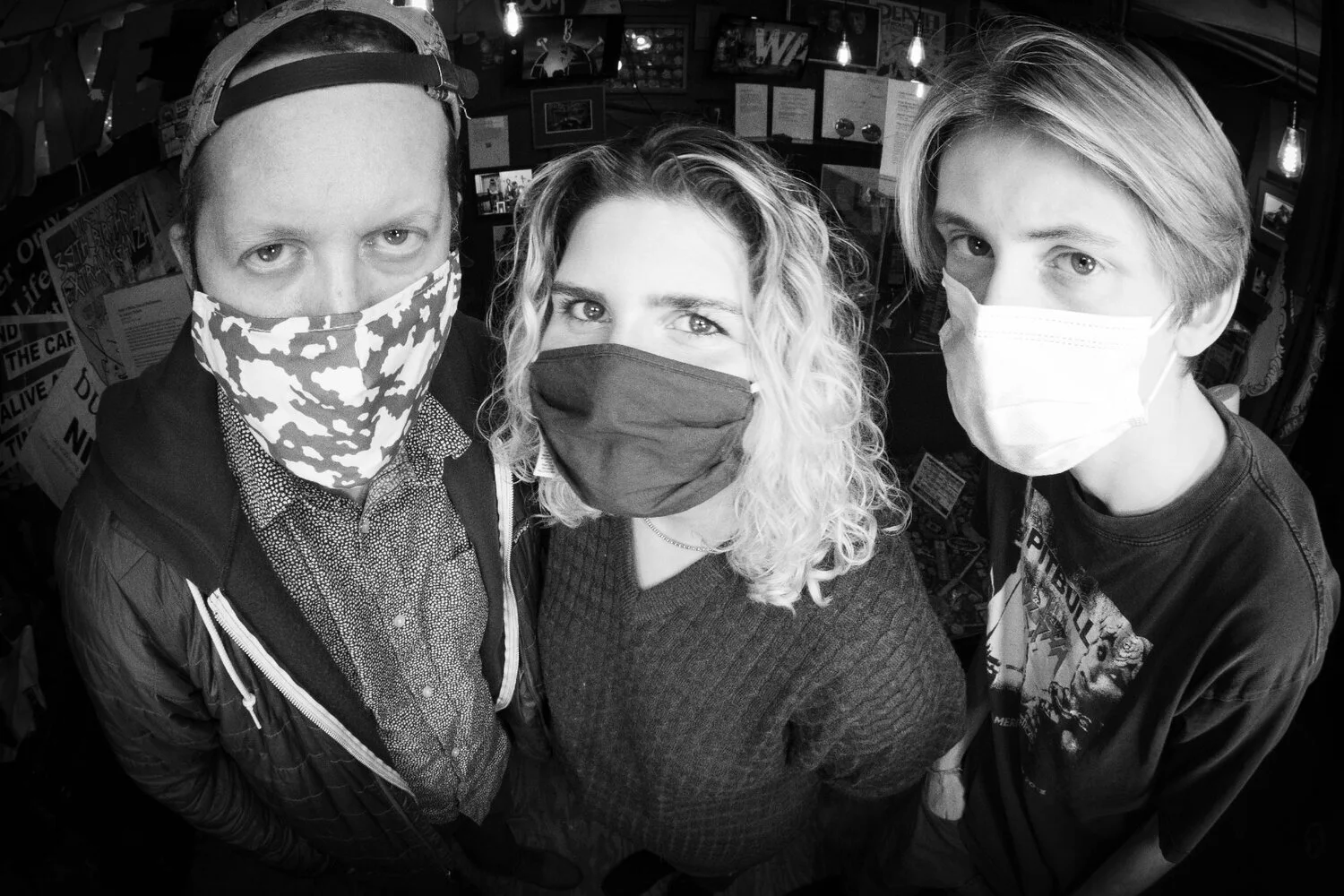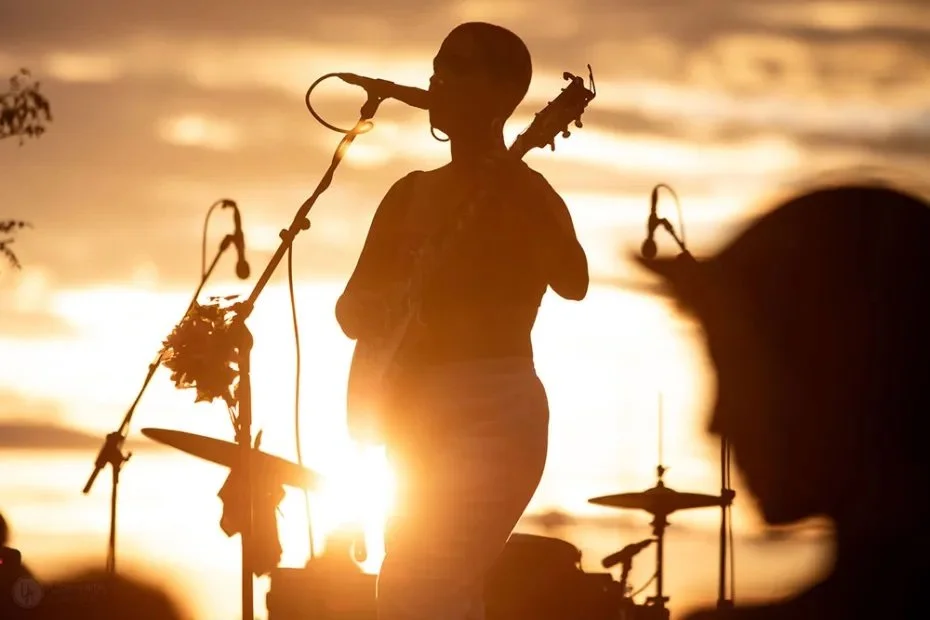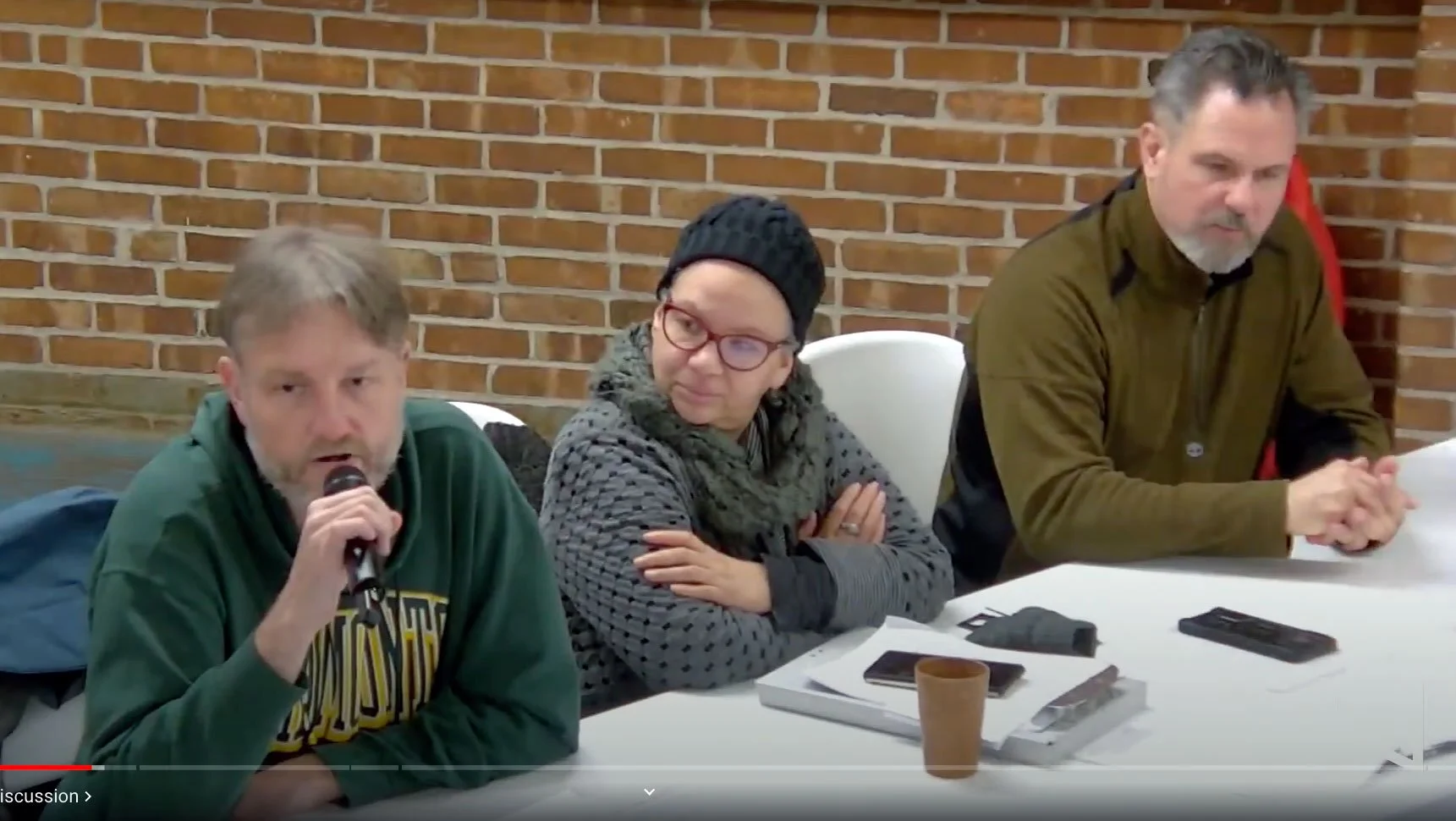A Timeline of Advocacy to Save 242 Main and remind City Leaders to value Youth-Led Programming in Burlington
2016
May: Burlington’s Mayor Weinberger invited the demolition of Memorial Auditorium — the home of 242 Main — in a proposal to build a new hockey arena with the University of Vermont.
June 14: Big Heavy World coordinated a public discussion about 242 Main at the Fletcher Free Library. Speakers included Martha Keenan, Capital and Special Projects Director for the City of Burlington; Gary Rogers, Recreation Superintendant, Burlington Parks, Recreation & Waterfront; Lisa, Teen Librarian, Fletcher Free Library; Jesse Bridges, Burlington Parks, Recreation, & Waterfront. Intro, 360-Video; post-intro (full conversation), standard video.
October: Big Heavy World began shooting the documentary ‘No Stage Diving: The Story of 242 Main’ with filmmaker Bill Simmon.
December 1: The Save242Main.com petition was launched, asking the Mayor, city councilors, and department heads, “as you resolve the structural issues with Memorial Auditorium by repairing or redeveloping the building, please keep 242 Main in its current location, operating as a teen-led program that can continue its legacy of serving Burlington’s youth in its uniquely powerful and historic way, providing an outlet for their creative and social vision. Please make this ‘community benefit’ a priority within the redevelopment process.” Photo of The Path at 242 Main by Tim Snow.
December 6: The 242 community collaborated to host a “final” show inside 242 Main, featuring 20+ bands: My Revenge; Fight Back; Get A Grip; Rough Francis and Death; The Wards; Spies In America; The Path; Suburban Samurai; Vultures of Cult; Better Things; CBRASNKE; Be Aggressive; Tyler Daniel Bean; Hellascope; Noodle; Sink Or Swim; Doom Service; The Red Summer Sun; Reverser; Polaroid Love; and Mr. Doubtfire. Band names link to each set recording of the event’s live stream.
2017
January 21: The 242 Main community hosted a 242 Main tribute concert at Higher Ground in South Burlington with performances by Rocketsled, From the Ground Up; Jesus Nut; Cancer Conspiracy; and Hemlock Verdict.
April & May: Presentations to all the city’s Neighborhood Planning Assemblies proposed a resolution: “We ask that as you resolve the structural issues with Memorial Auditorium by repairing or redeveloping the building, please keep 242 Main in its current location, operating as a teen-led program that can continue its legacy of serving Burlington’s youth in its uniquely powerful and historic way, providing an outlet for their creative and social vision. Please make this ‘community benefit’ a priority within the redevelopment process.” Wards 2,3 5 & 6 supported this resolution.
Filmmaker Bill Simmon presented about making ‘No Stage Diving: The Story of 242 Main’ at Waking Windows.
May 27: The Save242Main.com petition collected its first thousand signatures. Photo by Tim Snow.
June 30: Big Heavy World and Rights & Democracy hosted a talk with Peter Moskowitz the author of 'How to Kill a City: Gentrification, Inequality, and the Fight for the Neighborhood.’ His book uses Detroit, San Francisco, New Orleans and NYC as models for how standard development policies can set a region on a path toward gentrification. Thomas Visser, professor and director of the Historic Preservation Program at UVM, opened the event with a presentation about the history of Memorial Auditorium, drawing from the research of graduate student Emma Rose Haggerty.
July 24: The Save242Main.com petition passed 2,000 signatures. Photo by Tim Snow.
December 8: The City of Burlington loaned one of the 242 Main drum kits to Big Heavy World where it has been used by high school students and bands who practice in the space or perform on 105.9FM The Radiator. Volunteer Kerry Langston gave the kit a total tuneup with new heads and replaced all the missing parts. They have a new kick pedal and live on as a community resource in 242 Main’s name.
2018
January 10: Big Heavy World’s Executive Director was interviewed by a city consultant on a fact-finding mission, collecting input about operations and programming at Memorial Auditorium. Read the interview summaries.
March through September: Big Heavy World hosted a substance-free, all-ages concert series to help fill that cultural gap and advocate for the return of 242 Main. Bands who performed included Suburban Samurai; Keep Flying; Why Nona; Zigtebra; Father Figuer; Kudu Stooge; L. Dora; Immune Friction; Heavy Gaze; Kids Luv Cops; The Good Neighbors; Sleeping In; The Pyros; Ecce Shnak; Melkor; Lean Tee; A Film In Color; Phantom Suns; Doomf*ck; Smokestack Lightning; Bat House; The Most; Entrance to Trains; Gestalt; Fred Cracklin; Grease Face; Wishbone Zoë; At The Heart of It; Cemetery Show; Doom Service; Paper Boats; Hard Charger; Appalachian Terror Unit; Alexia Avina; Bambi Lou; Paper Castles; Erin Cassels-Brown, Stay Inside; Good Looking Friends; Days On End; Call Shotgun; Doctor Rick; Ula Klein; Birthday Ass; Million Dollar Lounge; So Many Chills and more.
August through October: Public outreach and a series of public workshops were hosted by the city’s Community and Economic Development Office. Their consultant produced three potential models for the future uses of Memorial Auditorium — and only one of them returned “Youth-Led Music” to the historic 242 Main space inside the building. Big Heavy World attended every public meeting about the future of Memorial Auditorium to make sure youth-led programming was valued and included in the 242 Main location.
August 23: The results of a community survey about Memorial Auditorium were presented at a Parks, Arts & Culture Committee meeting of the City Council at City Hall. More than 2,500 surveys were completed, with overwhelming support for Memorial Auditorium to be repaired and more than half responding in support of “youth music space” and “youth-led program space.” The city now states on its website, “Throughout these public engagement processes, it was clear that restoring the building and preserving the use of Memorial as a public assembly space continue to be priorities in the Burlington community.”
December 6: Consultants Bargmann Hendrie + Archetype, Inc. gave a presentation about renovating Memorial Auditorium that proposed to return “Youth-Led Flexible Performance Space” to the floor plan of Memorial Auditorium, where for a period the 242 Main space was described as a potential storage space for the Burlington Farmers’ Market.
2019
January 3: The City of Burlington passed the 242 Main office door to Big Heavy World to keep safe until Memorial Auditorium is renovated and the door can be returned to its spot.
February through June: The 242 Main office door and an interactive exhibit of documentary interview clips was part of Big Heavy World’s ‘Vermont Music Far and Wide’ exhibit at the Vermont Historical Society Museum in Montpelier, sharing 242 Main’s story with more than 6,000 museum visitors.
2021
October: The editing role for ‘No Stage Diving: The 242 Main Story’ was entrusted to filmmaker Mark Covino (‘A Band Called Death’).
May: The students of the Digital Media Lab at Burlington Technical Center reviewed the 242 documentary interviews, had community presenters describe modern skills for music venue and safe space management, and interviewed each other for a radio program about their vision for a future 242 Main.
September 10: The Tiny Museum of Vermont Music History opened inside Big Heavy World with a permanent 242 Main exhibit.
June: The City Council passed an ordinance that takes money from the city’s new capital project budgets and gives it to the city’s arts office to buy public art with. The definition of “public art” in the ordinance doesn’t include the performing arts, so this stream of city funding meant to support capital projects for public art won’t help rebuild Memorial Auditorium or 242 Main, keeping all these resources inequitably for the visual arts. Big Heavy World began conversations with city councilors and Mayor Weinberger about this unfair treatment of music and young people. Image by Yair Ventura Filho from Pixabay.
September 29: BTC Students were interviewed on Rocket Shop — Big Heavy World’s local music radio show on 105.9FM The Radiator — about their work to define a new all-ages cultural space in Burlington.
October: Big Heavy World and The Association of Africans Living in Vemont began discussing collaboration to host all-ages shows at the O.N.E. Community Center. Young people up to age 25 began meeting at Big Heavy World on Wednesdays at 5pm to plan and promote all-ages shows.
September 13: Mayor Miro Weinberger discussed the General Bond ballot item to be voted on at the upcoming December 7 special election. He suggested Memorial Auditorium might have three futures: 1) It could be repaired and reopened with the $10M from this bond, describing the proposed funds as only a “placeholder.” 2) He said, “The council working with the public could decide there is not a viable route there and this could give us the funds to… transition the site;” leaving leadership and a statement of values to others and pinning the demolition of the building onto them, ignoring the outcome of the 2018 public planning process; or 3) integrate it into a new high school on the Gateway Block site, an idea that consultants hired by the city have said is a bad idea for numerous reasons.
2022
February 7: Hyperallergic, an online arts publication with over a million monthly visitors, invited Big Heavy World’s director to write a commentary about the Percent for Public Art ordinance which, as it was written, unfairly monopolized an entire revenue stream for the visual arts, leaving the city’s performing arts infrastructure without support. In their words, Hyperallergic “challenges the art world status quo, investigating the inner workings of art institutions and markets, shedding light on the movements and individuals fighting for greater inclusion and representation.” Photo of ivamae by Luke Awtry.
March 28: Big Heavy World’s director attended one of several Public Art Committee meetings of the Burlington City Arts advisory board to ask that the marginalization of the performing arts within the Percent for Public Art ordinance be corrected. The BCA Public Art Committee was developing the implementation plan for the Percent for Public Art program and could choose to create fairness in how that new funding stream was used. If they didn’t choose to create equity for the performing arts, these funds would remain monopolized by visual public art.
July 5: Big Heavy World director James Lockridge and respected maverick environmental property developer Melinda Moulton organized to raise community resources to repair Memorial Auditorium. Melinda was responsible for a 25-year incremental redevelopment project for the Burlington Waterfront and spearheaded 250,000 square feet and thirty million dollars of built environment there. A meeting with the CEDO director and staff revealed that the Mayor was not interested in a public collaboration. Seven Days photo by Matthew Thorsen links to article.
October 5: The City released a ‘Requests for Proposals for the Adaptive Reuse of Memorial Auditorium,’ abandoning leadership that would accomplish the community’s vision generated by the 2017-2018 public process. “New, mixed-income housing” was included as an objective — a use that did not appear among the 25 potential uses that were identified as most important to the people of Burlington. The RFP was not promoted to press, published to the City’s Memorial Auditorium web page, or delivered to the previous respondents to an earlier RFP; this was partially corrected when addressed to the administration by Big Heavy World six weeks after the RFP process launched. With so little potential for the RFP to be known or responded to, the RFP process had the appearance of being a tool of demolition by neglect. Photo by Glenn Russell.
November 25: Patrick Crowley of VT Digger wrote a profile about advocacy to save Memorial Auditorium and the imbalance in how the arts are supported by the City. Photo by Glenn Russell.
November 26: Big Heavy World submitted a proposal to the Request for Proposals for Adaptive Reuse of Memorial Auditorium. The proposal was designed to complement the programming of the larger property developer who would be awarded the contract to repair and operate the building, fitting in to help bring some of the community’s priorities to life (“Youth music space” and “Youth-led program space”) while reinstating 242 Main in its historic space. The proposed model would engage youth programs from across the city to facilitate youth-led cultural space that was inclusive of a wide spectrum of youth interests.
2023
January 12: The Wards 2 & 3 Neighborhood Planning Assembly passed this resolution and delivered it to the City Council and Mayor: “Whereas the residents of Burlington have identified support for the performing arts and youth programming as two of the top six priorities for a restored Memorial Auditorium; Whereas the City of Burlington put forth a request for proposals for Memorial Auditorium and a local non-profit, Big Heavy World, has proposed the reinstatement of youth music and youth led programming in response to resident priorities and the City’s request; Whereas the proposal from Big Heavy World is compatible with other proposals and can be incorporated into future proposals and programming proposed by other developers; Be it resolved that the Wards 2&3 Neighborhood Planning Assembly (NPA) supports the proposal from Big Heavy World to re-establish the teen youth center formerly known as 242 Main St located in the lower level of Memorial Auditorium.” Image from Town Meeting TV video.
April 3: The Mayor’s annual State of the City address to the City Council included more than seven paragraphs highlighting infrastructure projects. They included solar installations; the new high school; Main Street; Bank Street; Cherry Street; Pine Street; St. Paul Street; new and old parks; the bike path; playground overhauls; the Moran Plant; the Champlain Parkway; and the transit center. Memorial Auditorium was not mentioned in all of this — not as a current project; not as an aspirational project; not as any kind of commitment at all. View the State of the City address at Town Meeting TV.
April 7: Mayor Weinberger issued a press release describing that neither of the two full proposals to the RFP for Adaptive Reuse of Memorial Auditorium would be engaged by the city. It said that “the City will release a new RFP for Memorial Auditorium and the municipal parking lot west of the building in the coming months.” This new RFP is likely to attract developers on a much larger scale by including much of the city block. The finance and construction necessary for this will be on a faceless, monolithic scale with expectations for financial returns that are unlikely to have alignment with the programming needs expressed by the people of the city during the 2018 public process. If any social benefits are to come from it, they should be expressly mandated within the RFP, but Mayor Weinberger described that, “The new RFP will have narrower goals and objectives to encourage more responsive proposals.” This is an inarguable retreat from the community’s vision for Memorial Auditorium, and disrespects it. WCAX News story.
May 31: The documentary film about 242 Main reached a milestone: The first rough ‘assembly cut’ of interview footage was created, establishing the structure of the film and positioning the director to dial-in the story and begin to include all the archival footage, photos and poster art that will help bring the narrative to life. After years of filming, transcribing interviews, large-scale creative investment by two filmmakers, and gathering of artifacts and ephemera from 242 Main’s generous and patient community; a threshold was crossed that signals this film is on its way. A lot of work is left to do before it can be shared with the public — including refinements and the addition of all the fun visual ephemera that has been shared so graciously with the production team.























